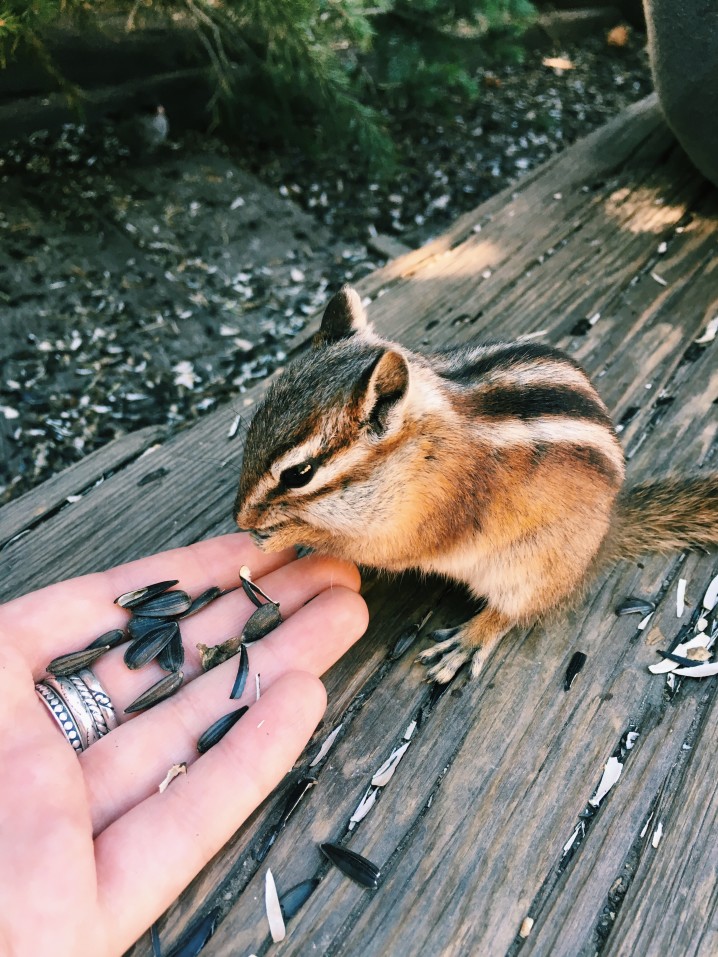
October 21, 2021
Are Chipmunks Smarter Than Squirrels?
Animals tend to have intelligent capabilities that are far advanced beyond what we think about them. Animals have improved their habits based on the influence of the environment, and most of the things they do indicate that they are bright and intelligent.
When we compare a chipmunk and a squirrel, we find the chipmunk to be smarter than a squirrel. This might come as a surprise, but it is a fact observed from their nature. Both animals are smart and intelligent, but the chipmunk is a bit smarter than the squirrel. Let us break it down.
How Intelligent Is A Chipmunk And A Squirrel?
Chipmunks are known to make homes for themselves by creating complex tunnel systems in their burrows. They can create a system up to 30 feet long, which is evidence of their great IQ. They can also make nests in bushes and logs and only interact during the mating season. They also have a complicated communication system that uses various calls, which all have different meanings.
Squirrels are always obsessed with nuts. They can always be seen burying them and seem always to remember precisely where they had buried their stash. Instead of storing all their nuts in one place to prepare for the winter, the squirrels are scatter-hoarders and will keep nuts in several places.
This shows that they are organized creatures that are always meticulous about how they store their food. They also have a strong sense of smell which helps them find food.
However, in terms of IQ, the chipmunks exceed the squirrels since they have been known to create more complex systems for their habitat.

How Do Chipmunks And Squirrels Communicate?
Chipmunks have vocal communication, which is primarily made up of a series of high-pitched “chip” noises that are similar to the chirping of birds. The repeated sounds can last for up to 30 minutes and make claims on their territories. If these calls are challenged, it can sometimes lead to aggression. The vocalizations are also quite complex and are all used to pass different information to the other chipmunks within hearing distance.
To respond to a danger on the ground, such as when a chipmunk is being chased by a predator, it will use deep clucking sounds or trills that are much shorter than chips. They are a warning to other chipmunks to be more alert and vigilant.
In addition, body language is used when one chipmunk comes across other chipmunks. These are visual cues implying their intention and can be accompanied by chemical communication through smells.
Squirrels make use of a vast number of complex signals to communicate with each other. These include complex vocalizations, scent, and visual cues. Vocalizations can be categorized into warnings, mating, nesting, and aggressive calls. A male pursuing a female squirrel will use a series of calls similar to sneezes to get her attention. A frightened squirrel will let out a small shrill scream.
Squirrels also use the tail for communication, and it can be shaken or waved depending on the message. Moreover, body language is used by the squirrels to convey their emotional state. Scents are also part of their communication, and they use them to mark their territory.
Can Chipmunks And Squirrels Understand, Remember, Or Recognize Humans?
Squirrels have, over time, adapted to living with people and have been proven to have an excellent memory. They can remember humans and can recognize the people that can be trusted as a source of food. Their memory is evident in studies where they were able to navigate a maze.
Chipmunks are not social and friendly. They would not even make a good pet and always try to stay hidden. Only chipmunks raised from an early age will be accustomed to human contact, and they can learn to play and tolerate petting.

Do Chipmunks And Squirrels Bite?
By nature, squirrels are not known to be aggressive, they are usually frightened of humans and will not attack them. Their natural defense is to bite whenever they feel threatened, but they will not bite their owners hard. The biting habit is a natural trait of the squirrels, and they cannot stop it. A pet squirrel will only bite playfully, and it will not hurt you.
Chipmunks are harmless unless they are feeling threatened. In such a scenario, the chipmunk will bite you hard and run off as fast as it can. When stressed, chipmunks become a lot more aggressive, and in this case, they will scratch or bite you.
When you see a distressed chipmunk, be sure to keep your hands away from it as it has very sharp teeth, and the bite will hurt. If it bites deeply, you might even start to bleed, and you must be treated immediately to avoid the risk of infection or even a septic reaction.
Treating the wound as soon as possible is the recommended course of action when a chipmunk has bitten you. Although they do not carry rabies, chipmunks can transmit other diseases such as Lyme disease, plague, and La Crosse encephalitis.
Our Westchester Wildlife technicians are highly trained and experienced in eliminating squirrels and chipmunks from your property. If you’re seeking squirrel or chipmunk control services in Westchester, Dutchess, Putnam Counties, NY, and Fairfield County, CT, contact us today to schedule a free phone consultation or an appointment with our qualified team of pest and wildlife exterminators.
